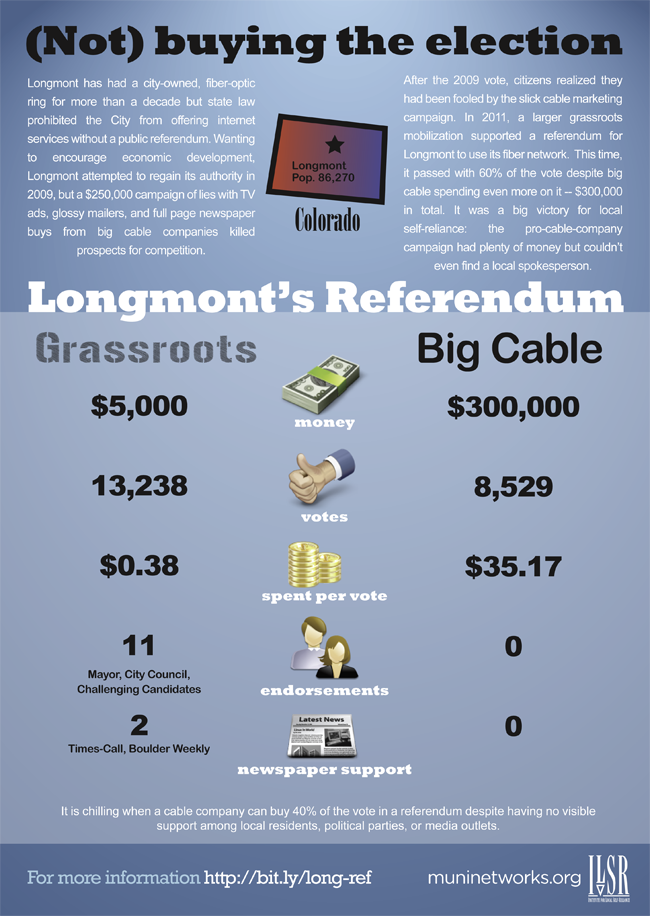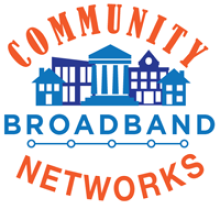A deep thank you to Public Knowledge for their
throwing back the curtain on AT&T's lobbying operation in the attempted takeover of T-Mobile.
Whenever the discussion of public v. private arises, the focus is inevitably on the advantages that the public sector supposedly has over the private providers. We have documented these "
level playing field" claims and refuted them.
When I recently visited Lafayette, the head of the public utility told me that in fighting the Local Government "Fair" Competition Act in 2005 (meant to prohibit competition against incumbent cable and phone companies) Lafayette hired one lobbyists and the incumbents hired all the rest. In Tennessee, Chattanooga hires one lobbyist to defend itself from many lobbyists -- in October I learned that AT&T has
already registered 26 lobbyists for the 2012 session in Tennessee.
Not only do major national companies like AT&T already have most of the advantages in the marketplace, they spend mightily on lobbyists and campaign contributions to make sure it stays that way. One of the reasons I am an enthusiastic supporters of Larry Lessig's
Rootstrikers campaign is because the power of big telephone and cable companies likes in their ability to influence policy and elections, not in the quality of their services in the marketplace.
Back to Public Knowledge -- they researched AT&T's push for th T-Mobile merger and found AT&T hired three former US Senators, four former House members, dozens of staffers from both parties, and spent over $40 million in advertising to push its bid to reduce competition in the wireless market.
“This information gives us a more complete picture of the vast lobbying and advertising resources AT&T has dedicated to trying to ram through this takeover,” said Harold Feld, legal director of Public Knowledge. “It is even more impressive that while many members of Congress have ignored the facts and are backing this takeover, the Justice Department and the Federal Communications Commission have not. It is clear that the data the DoJ and FCC have compiled on this deal will negate all of the money AT&T has spent to mislead policymakers and the public.”
 The desire to focus on long term investments rather than rapidly evolving services is a natural reaction given the historic role of local governments in long term infrastructure investments. Fiber certainly fits in that description and as many have noted, the comparison to roads is apt.
The desire to focus on long term investments rather than rapidly evolving services is a natural reaction given the historic role of local governments in long term infrastructure investments. Fiber certainly fits in that description and as many have noted, the comparison to roads is apt.







